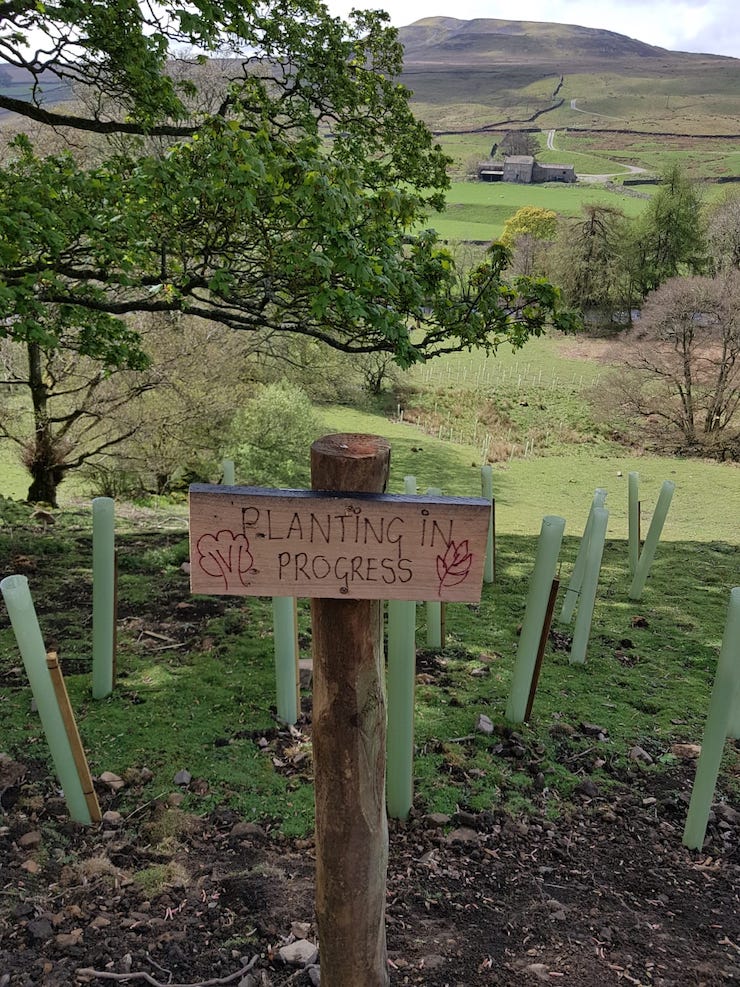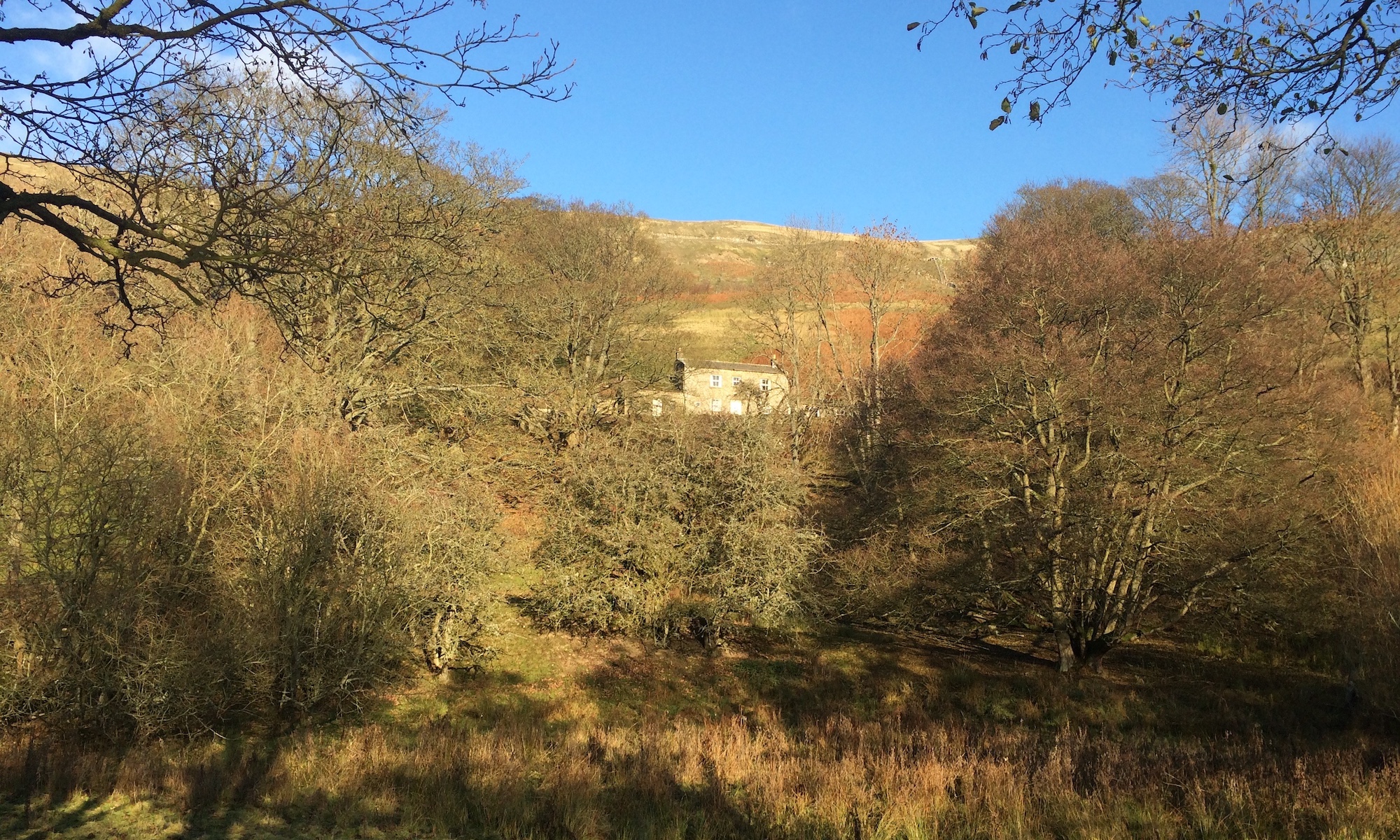by Toni Beardsall
20th November, 2020
Liz Sutcliffe’s quest to create a home immersed in a natural landscape led her to Heggs Farm, an eighteenth century off-grid cottage set in 136 acres at the northernmost point of the Yorkshire Dales National Park. Her travels round the world had given her an appreciation of the beauty and diversity of landscapes and the sanctity of natural spaces. Drawn to the dramatic limestone escarpment of Fremington Edge rising above Arkengarthdale and Swaledale, Liz saw both an opportunity for the slower pace of life she desired and the chance to advance biodiversity and reinstate nature-led processes to the land.

The Heggs Farm landscape is varied, rising from the riverside meadows at the dale bottom through wood, pasture and scrub to bracken and finally thin-soiled mossy grassland at the top of the moor. Liz was clear from the outset that she wanted to rewild the land to build ecosystem resilience and create and connect spaces for wilder habitats to flourish. Though stock has been absent from Heggs since it ceased being a working hill farm, the land is greatly degraded due to past overgrazing and a rabbit population proliferating in the absence of natural predators. Further degradation comes from the frequent flooding of Arkle Beck, one of the fastest rising tributaries of the Swale, which caused particularly damaging flash flooding in July 2019.
So far, the cottage has been completely renovated, nest boxes have been put up and trees have been planted to help counteract soil erosion and slow the flow of water through the land. For the most part though, Liz and Heggs are very much in a stage of discovery. “I do feel like I’m right at the beginning” she says, “even though more than a year has passed. I really want to establish that baseline, I still don’t really know what’s there. I could start doing random things but I don’t know what I might be affecting because I haven’t taken the initial measurements.”

Since February 2019, Liz has been getting more acquainted with the land, observing it through the seasons and establishing where regeneration will occur naturally, depending on seed sources and soil states, and where restoration will require an initial helping hand to kick-start the processes again. Liz is hoping to assemble a more comprehensive inventory of the biodiversity at Heggs with the help of volunteers in the coming Spring.
She has discovered that others share her ambitions. “I’m lucky to have immediate neighbours who are very like-minded”, says Liz. This partnership will enable Liz to embark on larger scale restoration, increasing connectivity and effecting real change. Plans are underway for the creation of a native broadleaf woodland that will follow the natural contours of the land and taper into existing woodland. Liz will be using a mixture of natural generation where possible, broadcasting locally sourced provenance seed as necessary and is considering introducing hardy cattle to disturb the soil and facilitate germination. She also intends experimenting with alternatives to plastic tree guards, establishing control areas for monitoring purposes – this will be fully-funded by the Tees-Swale Naturally Connected project and DEFRA Countryside Stewardship scheme.
Other future goals include an ecotourism business allowing Liz to share the beauty of Heggs and her love of meeting and connecting with people in quiet, wilder places. Initial plans are for a wild camping site with basic facilities, with a longer-term intention to build year-round accommodation structures using natural materials sourced from the land, with support and guidance from the National Park’s Sustainable Development Fund. The farm outbuildings also offer many possibilities for social connection and education, and as the business grows organically Liz wants to share these spaces too.
“Life has that funny way – once you’re doing something you’re passionate about, the right people appear at the right time” Liz says, referring to a neighbour who supported her when purchasing Heggs and the volunteers who have helped in clearing flood debris. She is very aware of a balance between the needs of people and the needs of the land, particularly in those areas more vulnerable to the effects of heavy footfall. Public footpaths provide a way of experiencing Heggs and Liz has put up signs and information boards to explain the restorative processes and environmental impacts to walkers and the local community.

The Yorkshire Rewilding Network is delighted to be able to follow Liz from the start of her journey at Heggs and we’ll be sharing her story of regeneration as it happens.


